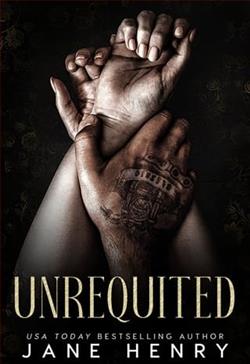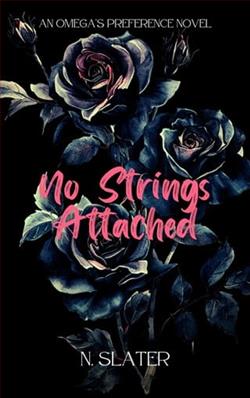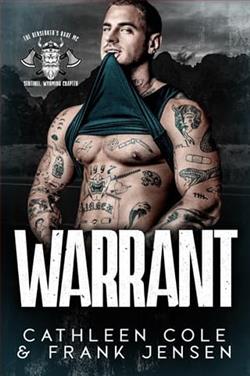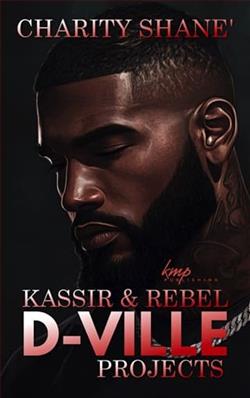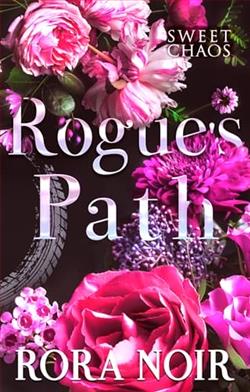Page 71 of Velvet Betrayal
He made it sound so simple. But nothing about this was simple. It was blood and legacy and love and wire-cutters and old, teeth-baring risk. It was every hour of every day, bracing for the next high-velocity ricochet.
I thought about the way Kieran’s hands had felt on my neck, the blue of his eyes when panic overtook the bravado. I thought about how many times I’d watched him lie and never flinch, but this wasn’t a lie. I knew exactly how the city would respond: withworld-class indifference. What the press called “complicated history” was just “plausible deniability” in better shoes.
“I’m going to get all my ducks in a row,” I said. “Then I’m going to get Rosie from Julian, tell him I’m announcing our divorce, and then, I don’t know. Have a divorce party?”
“Right. And then your press conference. Easy peasy, right?”
“Yeah,” I said. “Yeah…easy.”
Ruby
Iwas about to walk straight into the lion’s den—and the funny part was, that wasn’t even the hard part of my morning.
First, I had to pick up my daughter from my soon-to-be ex-husband’s place. Because life didn’t pause for mob threats or federal investigations. You still had to do the school runs, the hair appointments, the custody exchanges.
I parked outside the condo and clocked three unmarked cars lurking on the block. Obvious. Too obvious. For a second, I considered making a scene—take down the plates, call it in, act like I didn’t know exactly who was tailing me. But then I spotted the dented Civic and the blacked-out Tahoe. Both Callahan plants. They weren’t even pretending to be subtle about it. So I did what any overqualified woman does when the mob is babysitting her custody drop: ignored it, slung my bag over my shoulder, and buzzed up for Julian.
He answered the door in his lawyer-off-duty uniform: sweatpants, faded college tee, the body of a man who still worked out but only cared when he was due back in court. There was a shadow of stubble on his jaw, like he was trying out “rugged” for the weekend.
“You’re early,” he said, letting me in.
“I missed her,” I said. “And I wanted to talk to you.”
He didn’t flinch, just shrugged. “Valerie took her out to get her hair done. Little dad’s -girlfriend-daughter thing. Her treat. Don’t worry, it’s nothing permanent. I just wanted them to bond.”
I smiled. “That’s nice,” I said. And I meant it. “I like Valerie.”
He snorted. “Everybody likes Valerie.” He led the way into the living room, where the coffee table still bore Play-Doh scars from Rosie’s toddler years. I remembered the first time we brought her home—how I’d panicked at her tiny, red-faced scream until Julian, half-drunk on new-dad adrenaline, plunked her on the table and started making pancakes out of her feet. The stain was still there, if you knew how to look.
Julian poured himself a Diet Coke, holding the can up in silent question. I shook my head, but he poured a second glass anyway. He always needed something to do with his hands when things got tense.
“It’s messy in here. You don’t like messy.”
He shrugged. “Valerie says I need to chill out. I’m trying to learn to let things go.”
“Is it working?” I asked. I wanted it to, for him and for Rosie and for whatever came next. Julian was never the enemy, not even in the chapters when everything else fell apart.
He gave a half-smile. “I probably have early-onset reflux from the stress, but otherwise? Sure.” He poured the sodas, the hiss and foam filling the silence, and handed me a glass. We sat—not close, but not at opposite ends, either.
For a second, it felt like the old days. Before everything turned into legalese and bullet points. I wanted to hold onto that, but instead I took a sip—caffeine always the bridge.
“Rosie will be back in an hour,” he said, after the silence had stretched half a glass. “Valerie says it’s a whole princess thing. Up-dos, glitter, the works.” He smiled—quiet, tired, but genuine.
“She’ll love it. She’s obsessed with Elsa right now. Last week she tried to cut fringe into her own hair. I had to tell her it would fall out overnight and—” I stopped. I was narrating again, as if filling space would keep us from sinking back into the reasons we were here.
“Yeah, I’d like to keep her from using scissors on herself for as long as possible.”
“Did you file for the adoption?” I asked.
He nodded. “Yeah. I filed the second you said yes last week. Judge signed off in five minutes. Rosie will get the paperwork in a month and won’t even notice the difference.”
“Good,” I said. “I’m going to file, Julian.”
He just nodded, no edge to it. “Figured as much.”
He didn’t say it with anger or regret, just a tiredness that came from accepting the end a thousand times before the paperwork hit the court. I appreciated that. His face showed it, too—the new lines at the corners of his eyes, the way his mouth pressed flat, but also a weird steadiness in his jaw. The old warmth was gone, not replaced by bitterness, just the resigned competence of two people who had built and then quietly unbuilt a life together.
I set my glass down and looked past the TV, out the bay window to the January gray that poured over the city like wet cement. “I thought you’d have questions.”









